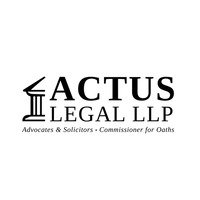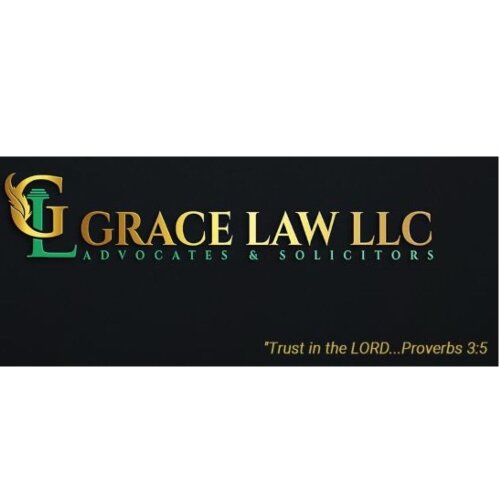Best Workers Compensation Lawyers in Chinatown
Share your needs with us, get contacted by law firms.
Free. Takes 2 min.
List of the best lawyers in Chinatown, Singapore
About Workers Compensation Law in Chinatown, Singapore
In Singapore, Workers Compensation Law sets forth that employees have a right to compensation in the event of an injury or illness occurring during the course of employment. The Ministry of Manpower oversees Workers Compensation in the country, including densely populated business districts like Chinatown. This law protects workers by ensuring they receive proper medical treatment and wage support during their recovery period.
Why You May Need a Lawyer
Engaging a lawyer can provide you with tailored advice concerning your specific situation. If you're injured while at work, a lawyer can guide you through the process of claiming compensation, or if the employer disputes liability, a lawyer could help you present your case effectively. Legal representation may also be necessary if your employer retaliates against you for seeking compensation, which is against the law.
Local Laws Overview
The Work Injury Compensation Act (WICA) in Singapore allows employees to make claims for work-related injuries or diseases without having to file a civil lawsuit against their employer. The amount of compensation is regulated by WICA and is dependent on factors like the worker’s age, salary, and nature of injury. Claims must usually be made within 1 year of the accident or onset of the disease.
Frequently Asked Questions
1: Is Workers Compensation mandatory for all employers in Chinatown, Singapore?
Yes, all employers in Singapore, including those in Chinatown, must buy work injury compensation insurance for all employees doing manual work, and all non-manual employees earning $1,600 or less a month.
2: Can an employer refuse to pay Workers Compensation?
An employer cannot refuse to pay Workers Compensation if the injury or disease is deemed to be work-related under the WICA. Non-compliance may result in substantial fines and/or imprisonment.
3: Do I need to pay for my own medical examination?
No, under the WICA, the employer is required to cover the cost of your medical examination required for your claim.
4: What if my injury occurs outside of my regular work hours?
If the injury occurs during a work-related activity or due to a situation caused by the work, regardless of the hours, it may still be considered for Workers Compensation.
5: Can I sue my employer for my injuries?
While you can make a claim under the WICA without filing a lawsuit, you retain the right to sue your employer. However, you must choose between claiming under WICA or filing a common law claim; you cannot do both.
Additional Resources
The Ministry of Manpower's official website provides detailed information on the procedures and eligibility for Workers Compensation. Community legal clinics in Chinatown, and the Law Society Pro Bono Services, may also be able to provide free legal advice or assistance.
Next Steps
If you believe you have a valid Workers Compensation claim, the first step is to report it to your employer. Seek medical attention and ensure all injuries are thoroughly documented. If your situation necessitates it, engage a lawyer who specializes in this field. Ensure you understand the process and your rights under the WICA. Finally, file a claim with the Ministry of Manpower, either electronically or by post.
Lawzana helps you find the best lawyers and law firms in Chinatown through a curated and pre-screened list of qualified legal professionals. Our platform offers rankings and detailed profiles of attorneys and law firms, allowing you to compare based on practice areas, including Workers Compensation, experience, and client feedback.
Each profile includes a description of the firm's areas of practice, client reviews, team members and partners, year of establishment, spoken languages, office locations, contact information, social media presence, and any published articles or resources. Most firms on our platform speak English and are experienced in both local and international legal matters.
Get a quote from top-rated law firms in Chinatown, Singapore — quickly, securely, and without unnecessary hassle.
Disclaimer:
The information provided on this page is for general informational purposes only and does not constitute legal advice. While we strive to ensure the accuracy and relevance of the content, legal information may change over time, and interpretations of the law can vary. You should always consult with a qualified legal professional for advice specific to your situation.
We disclaim all liability for actions taken or not taken based on the content of this page. If you believe any information is incorrect or outdated, please contact us, and we will review and update it where appropriate.









